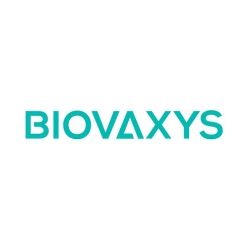BioVaxys Technology Corp. (CSE: BIOV) (FSE: 5LB) (“BioVaxys”) is pleased to announce that results from its preclinical animal study (also known as the “murine model study”) of BVX-0320, its Covid-19 vaccine candidate, show that the vaccine elicits a positive immune response against the SARS-CoV-2 s-spike protein. Previous interim data from the study showed it possessed an excellent emerging tolerability profile with no noteworthy clinical observations or observed toxicities in the mice. When the study concluded after 6 weeks, the excellent safety and tolerability profile was maintained.
The preclinical study, which began in September 2020 and was conducted by leading independent contract research organization (“CRO”) Charles River Laboratories, Inc. under contract with BioVaxys, evaluated the anti-virus immune response elicited by BVX-0320 in a controlled murine model by measuring the development of antibodies to the protein that binds the virus to human cells. Following two injections of BVX-0320 together with the immunological adjuvant, QS21, to 28 mice at four dosage levels, 96.4% developed positive antibody responses detected at week 6. As expected, prior to administering BVX-0320, all animals were antibody-negative, except for one mouse that had a borderline response. Importantly, mice that received the QS21 adjuvant without BVX-0320 developed no antibody responses.
Kenneth Kovan, co-founder, President and Chief Operating Officer of BioVaxys spoke to the results, “As the early data shows that BVX-0320 stimulates an antibody response to the SARS2 s-spike protein, we would expect to see a similar response against live virus infection. Although that work remains to be done, this new data is pivotal at this stage of development of our vaccine.”
BioVaxys and Charles River Laboratories continue to analyze the experimental data to determine the antibody levels induced by each dose and to measure the T cell responses. The latter consists of stimulating T cells obtained from the same mice with viral peptides and measuring the degree of T cell activation using the established analytical method of flow cytometry and the production of cytokines, including IL2 and gamma interferon. In a separate study, the mouse sera (collected from the test animals) will be tested for ability to inactivate live SARS-Cov-2 virus. Results are anticipated within the next month.
Upon completion of the data analysis, BioVaxys anticipates taking further steps to pursue regulatory approval for a Phase I study of its BVX-0320 vaccine candidate in humans.
James Passin, the CEO of BioVaxys, stated, “Although still early, we are very encouraged that the emerging profile for BVX-0320 is a relatively uncomplicated manufacturing process and a temperature-stable vaccine suitable for broad distribution, which lends itself to address a pandemic.” Passin further stated, “We hope to leverage this data to accelerate ongoing discussions with potential pharmaceutical partners on the development of new viral antigen vaccine candidates based on our haptenized viral protein vaccine platform technology.”
BioVaxys’ product pipeline includes BVX-0918A, an IND-stage haptenized cancer cell vaccine for treating late stage ovarian cancer. In Phase I and Phase II clinical studies previously conducted by BioVaxys, co-founder and Chief Medical Officer, Dr. David Berd, using an earlier generation of the BioVaxys cancer vaccine on nearly 500 patients with melanoma or ovarian cancer, the haptenized cell platform showed significant clinical promise.
Dr. Berd commented that, “A post-SARS2 infection T cell response appears to be a defining characteristic following recovery in COVID-19 patients. As we have observed significant T cell responses in previous studies following vaccination with haptenized proteins in cancer patients, our belief is that we will see the same clinical results with our haptenized vaccine platform in in viral diseases.”
BioVaxys has developed its vaccine technology platforms based on the established immunological concept that modifying proteins with simple chemicals called haptens makes them more visible to the immune system. The process of haptenization “teaches” a patient’s immune system to recognize and make target proteins more ‘visible’ as foreign, thereby stimulating an immune response.
For greater certainty, BioVaxys is not making any express or implied claims that it has the ability to treat the SAR-CoV-2 virus at this time.
About BioVaxys Technology Corp.
Based in Vancouver, BioVaxys Technology Corp. is a British Columbia-registered, early stage biotechnology company that is developing viral and oncology vaccine platforms, as well as immuno-diagnostics. The Company is advancing a SARS-CoV-2 vaccine based on its haptenized viral protein technology, and is planning a clinical trial of its haptenized autologous cell vaccine used in combination with anti-PD1 and anti-PDL-1 checkpoint inhibitors that will initially be developed for ovarian cancer. Also in development is a diagnostic for evaluating the presence or absence of a T cell immune response to SARS-CoV-2, the virus that causes COVID-19. BioVaxys has two issued US patents and two patent applications related to its cancer vaccine, and pending patent applications for its SARS-CoV-2 (Covid-19) vaccine and diagnostic technologies. BioVaxys common shares trade on the CSE under the stock symbol “BIOV” and are listed on the Frankfurt Bourse (FSE: 5LB).
ON BEHALF OF THE BOARD
Signed “James Passin”
James Passin, CEO
+1 646 452 7054
Media Contacts
Andrea Vuturo
+1 508 301 3774
biovaxys@dittopr.co
Cautionary Statements Regarding Forward Looking Information
This press release includes certain “forward-looking information” and “forward-looking statements” (collectively “forward-looking statements”) within the meaning of applicable Canadian and United States securities legislation including the United States Private Securities Litigation Reform Act of 1995. All statements, other than statements of historical fact, included herein, without limitation, statements relating the future operating or financial performance of the Company, are forward looking statements. Forward-looking statements are frequently, but not always, identified by words such as “expects”, “anticipates”, “believes”, “intends”, “estimates”, “potential”, “possible”, and similar expressions, or statements that events, conditions, or results “will”, “may”, “could”, or “should” occur or be achieved. Forward-looking statements in this news release relate to, among other things, regulatory approval for a Phase I study of its BVX-0320 Vaccine Candidate in humans and the overall development of BioVaxys’ vaccines, including any haptenized SARS-Cov-2 protein vaccine. There can be no assurance that such statements will prove to be accurate, and actual results and future events could differ materially from those expressed or implied in such forward-looking statements.
These forward-looking statements reflect the beliefs, opinions and projections on the date the statements are made and are based upon a number of assumptions and estimates, primarily the assumption that BioVaxys will be successful in developing and testing vaccines, that, while considered reasonable by the Company, are inherently subject to significant business, economic, competitive, political and social uncertainties and contingencies including, primarily but without limitation, the risk that BioVayxs’ vaccines will not prove to be effective and/or will not receive the required regulatory approvals. With regards to BioVaxys’ business, there are a number of risks that could affect the development of its biotechnology products, including, without limitation, the need for additional capital to fund clinical trials, its lack of operating history, uncertainty about whether its products will complete the long, complex and expensive clinical trial and regulatory approval process for approval of new drugs necessary for marketing approval, uncertainty about whether its autologous cell vaccine immunotherapy can be developed to produce safe and effective products and, if so, whether its vaccine products will be commercially accepted and profitable, the expenses, delays and uncertainties and complications typically encountered by development stage biopharmaceutical businesses, financial and development obligations under license arrangements in order to protect its rights to its products and technologies, obtaining and protecting new intellectual property rights and avoiding infringement to third parties and their dependence on manufacturing by third parties.
The Company does not assume any obligation to update the forward-looking statements of beliefs, opinions, projections, or other factors, should they change, except as required by law.
To view the source version of this press release, please visit https://www.newsfilecorp.com/release/67931














